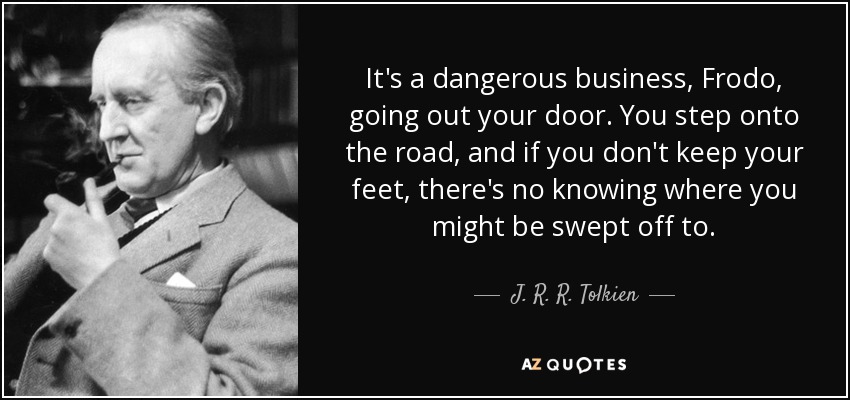Perfect Tips for Teacher Development (book review)

You may already know I’m a fan of CPD. The more I teach, the more I realise I have to learn. The more experienced trainer I am, the more people I meet who show me how to improve and develop. Conclusion? Once you set foot on the path of self-development, you should be ready for a proper journey with all its grim moments of self-doubt and breathtaking accomplishments of the goals achieved.
Master Tolkien explained it perfectly well:

When I saw Jack C. Richards’ 50 Tips for Teacher Development, I loved it from the very first moment. First of all, this book is a part of pocket editions of Cambridge Handbooks for Language Teachers – and the idea of pocket editions is just brilliant, as they give you a small book with short chapters full of succinct information, references and questions for self-reflection. Secondly, this book covers the whole process of CPD, starting with individual rookie teachers (what can I do to survive the day without killing my students?) and finishing with the entire school environment, and how it can be adjusted to help teachers grow (what can I do to make my teachers attend my workshop without resorting to blackmail?). Thirdly, all I needed to do was read the first sentence:
For many teachers, professional development is like the weather: it just happens, and, if you are lucky, it may happen somewhere near you.
Organisation
A well-organised book is something I love, and in case of 50 Tips for Teacher Development, I have nothing to complain about. There are 12 main chapters focusing on:
- reflecting on own CPD
- learning about own approach, learners and the whole construct of the lesson unit
- expanding own knowledge
- creating institutional professional development culture
- sharing own experience.
Content
Each chapter consists of a few short “lessons” to read and reflect on. What I really like about those lessons is that each starts with a clearly defined purpose, which is very useful in a book with so many varied topics. You will also know the rationale of the activity along with the set of procedures helping you to carry it out.
You can take up this book being at various points of your teaching career. First, as a rookie you will start with gaining more insight into self reflection, learn how to become a better teacher. Then you will get some guidance on how to experiment with your experience, and how to readjust and fix the issues that may be improved. Finally, the book offers a variety of ideas on how to share your skills, knowledge and experience… including networking during conferences!
Pro-tip: coffee and alcohol work everytime (depending on the stage of the conference). Basically, you see someone standing alone and drinking something – you go and network!
Recommendation
I am absolutely convinced I would have skipped some professional mistakes had I read this book 15 years ago. So, naturally, I would like everyone to read it – and it’s such a small book it’s easy to buy and make notes in it. It’s great for an individual teacher, and for a director of studies trying to motivate own team to become better professionals.
Even after 15 years of teaching and learning how to become a better educator, I’ve still found a lot of things I can reflect on and implement to work on my skills. I hope this convinces you to get your own copy – especially if you’re still in the New Year New Me mood!
Enjoy!











Leave a Reply
Want to join the discussion?Feel free to contribute!